Taiwan passes law favouring China and limiting new president’s powers
Thousands of protesters had gathered outside Taiwanese parliament, calling on MPs to ‘refuse Chinese political interference’
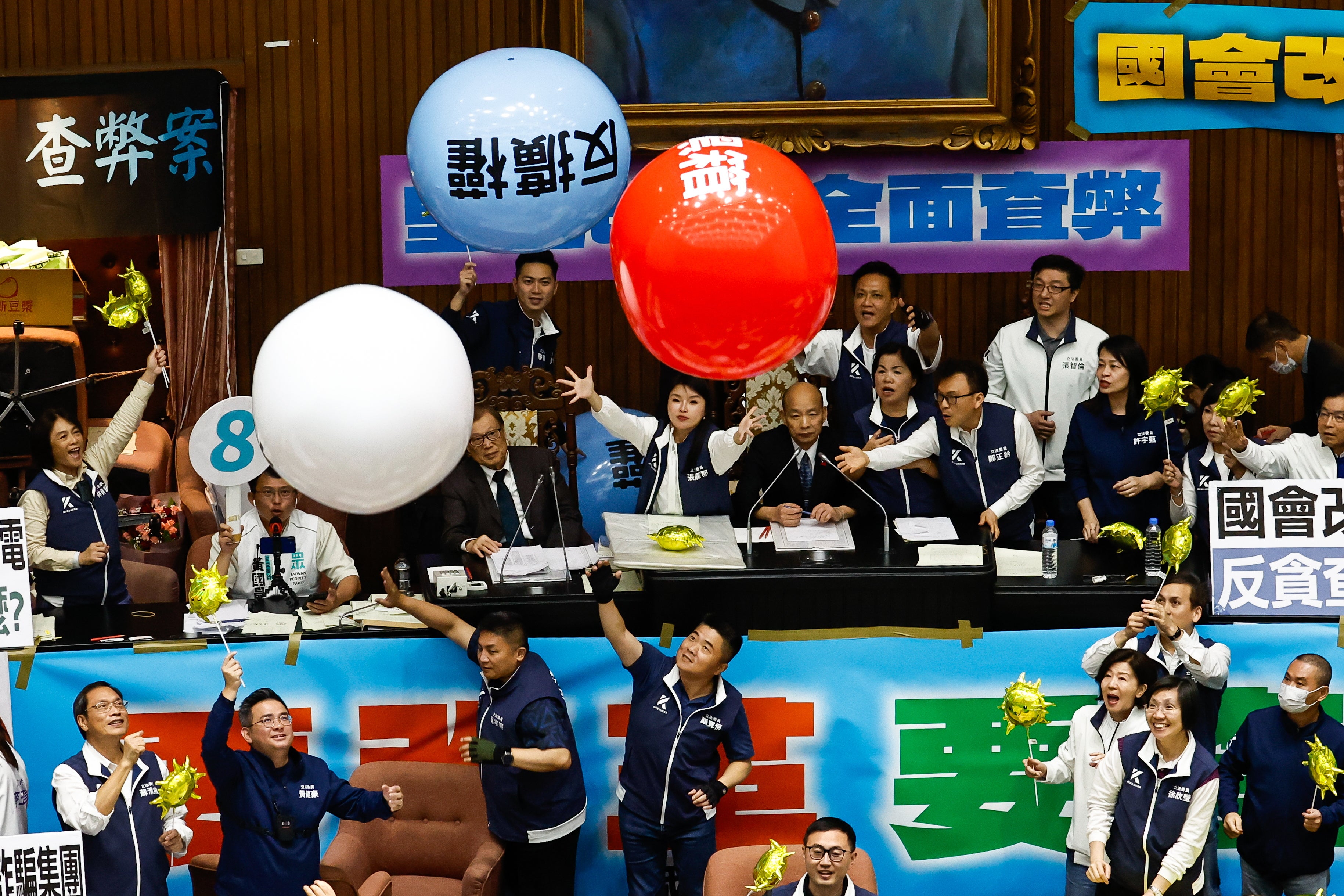
Your support helps us to tell the story
From reproductive rights to climate change to Big Tech, The Independent is on the ground when the story is developing. Whether it's investigating the financials of Elon Musk's pro-Trump PAC or producing our latest documentary, 'The A Word', which shines a light on the American women fighting for reproductive rights, we know how important it is to parse out the facts from the messaging.
At such a critical moment in US history, we need reporters on the ground. Your donation allows us to keep sending journalists to speak to both sides of the story.
The Independent is trusted by Americans across the entire political spectrum. And unlike many other quality news outlets, we choose not to lock Americans out of our reporting and analysis with paywalls. We believe quality journalism should be available to everyone, paid for by those who can afford it.
Your support makes all the difference.Taiwan’s opposition-controlled parliament has passed a series of new laws that limit the president’s powers and are seen as favouring China, despite days of street protests urging them to reconsider.
The controversial bills became law on Tuesday afternoon following a day that saw heated arguments on the floor of the chamber breaking out into shouting and scuffles.
Taiwan’s government is controlled by new president Lai Ching-te, who took office last week after his Democratic Progressive Party won presidential elections. But legislative elections held at the same time saw the DPP lose its majority, and the opposition Nationalist Party (KMT) now leads the parliament.
The proposed new laws, tabled by the KMT and backed by its allies, expand MPs’ influence over the government’s budgets, including proposals for increased defence spending that the party has blocked in what many see as a concession to China.
It will also give the power to lawmakers to summon the president, companies and the general public for questioning as well as give them access to confidential documents.
The DPP has said it will challenge the bills in constitutional court.
More than 5,000 people gathered outside the legislature on the third and final reading of the bill to protest the changes earlier on Tuesday.
The protests against the law that took place across the country last week are thought to be the largest since the unprecedented 2014 Sunflower Student Movement when students and activists occupied the Legislative Yuan (Taiwan’s legislature) in Taipei to block a controversial trade pact between Taiwan and China.
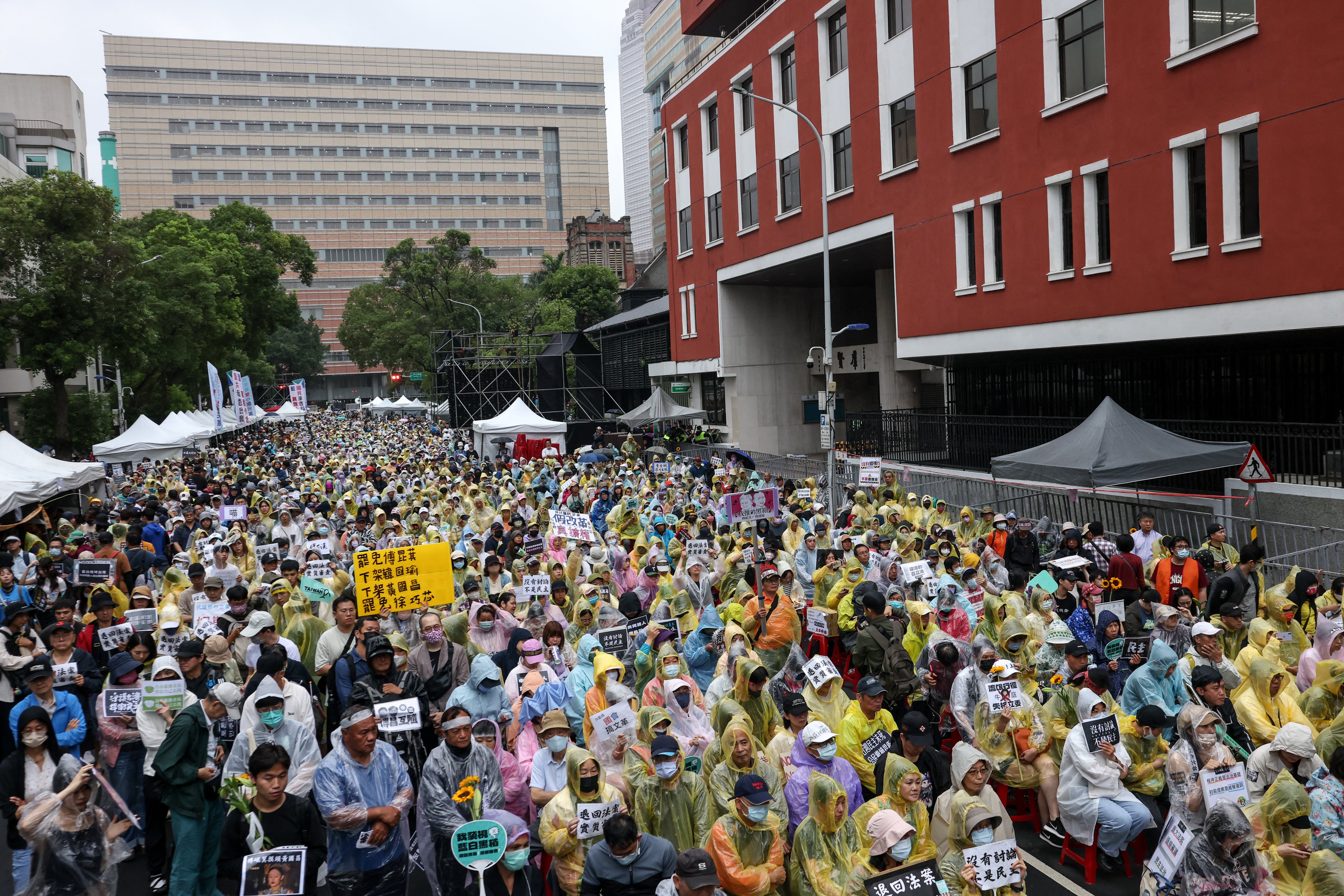
“Even if democracy is dead, we will not stop fighting,” protesters shouted outside the building on Tuesday. Other protesters shouted “refuse Chinese political interference”.
Opponents of the laws have said that the changes will undermine Mr Lai’s agenda and could threaten Taiwan’s security by compelling disclosure of sensitive diplomatic or strategic information to lawmakers, some of whom are seen as sympathetic to Beijing. The KMT officially backs unification with China, from which Taiwan separated during a civil war in 1949.
Mr Lai is an avowed champion of Taiwanese democracy despite growing intimidation tactics by mainland China, which claims the island as a breakaway province. Mr Lai used his first speech in office to call on Beijing to “face the reality” of Taiwan’s existence and “respect the choices” of its people.
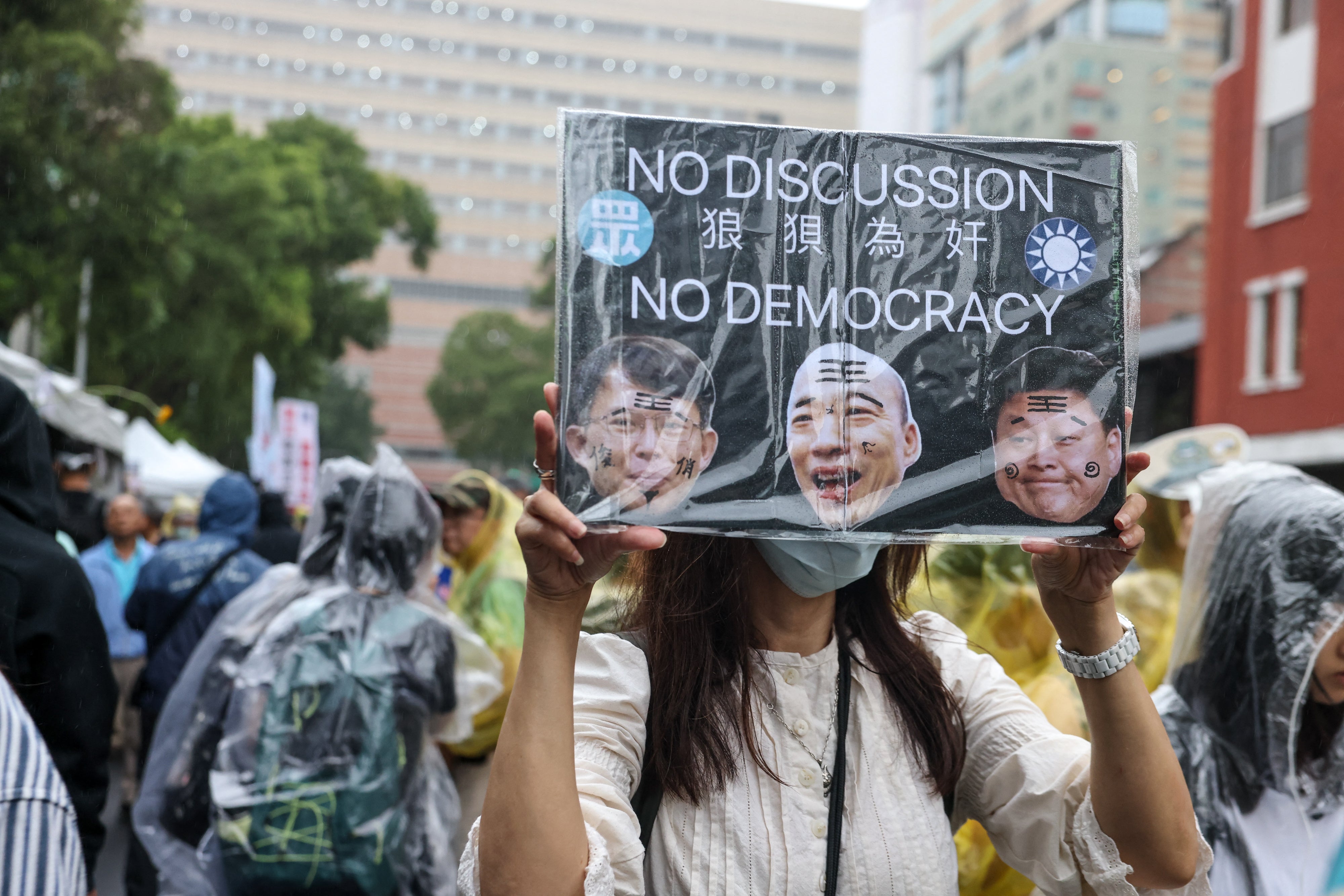
The DPP said the reforms were forced through without proper consultation and their content was either vague or an over-reach of power. During Tuesday’s debate its lawmakers threw rubbish bags and paper planes at their opposition counterparts.
“You can seize parliament but you cannot seize public opinion,” DPP parliament leader Ker Chien-ming said in an address to the chamber, adding that it was clear Beijing had influenced Taiwanese politics.
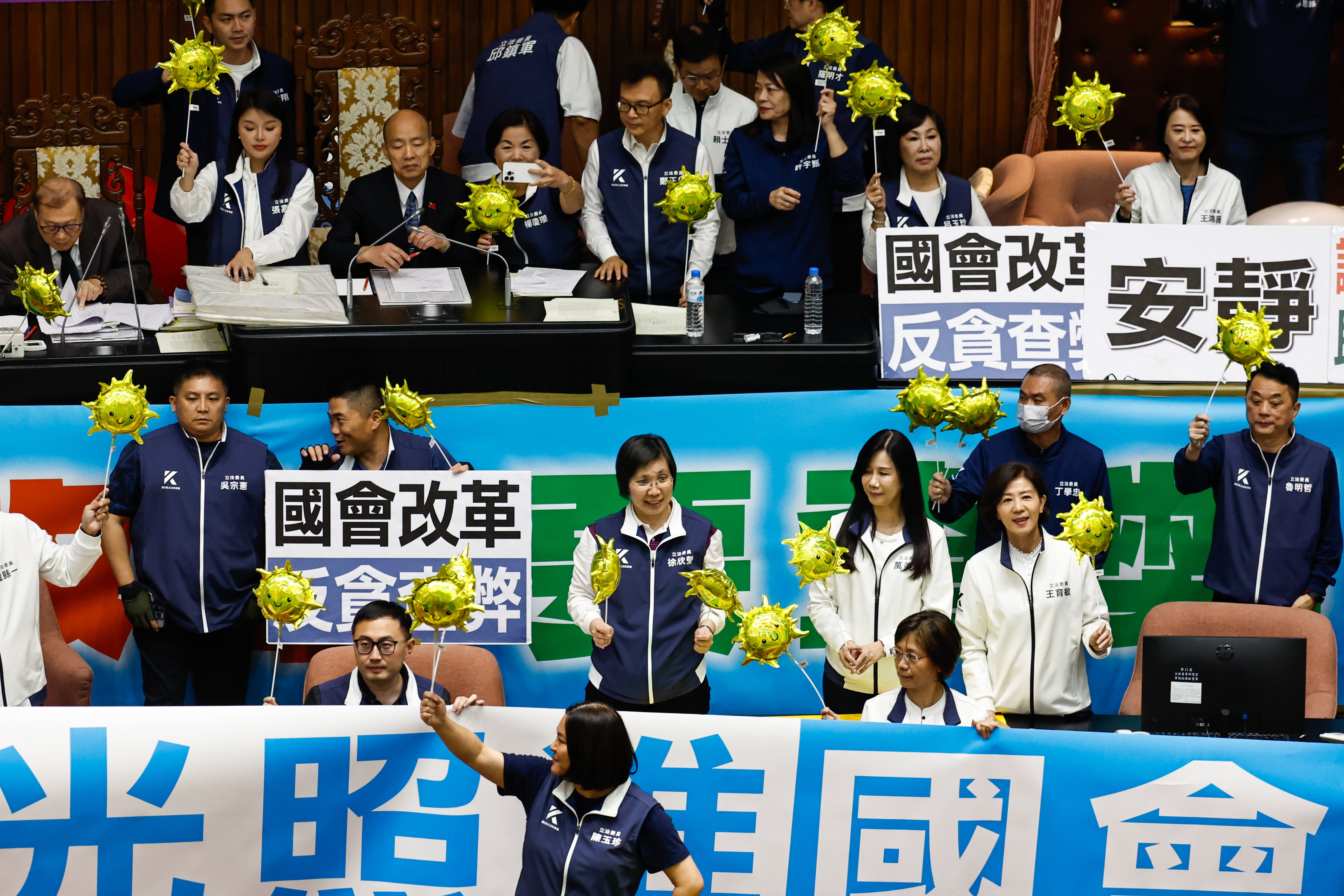
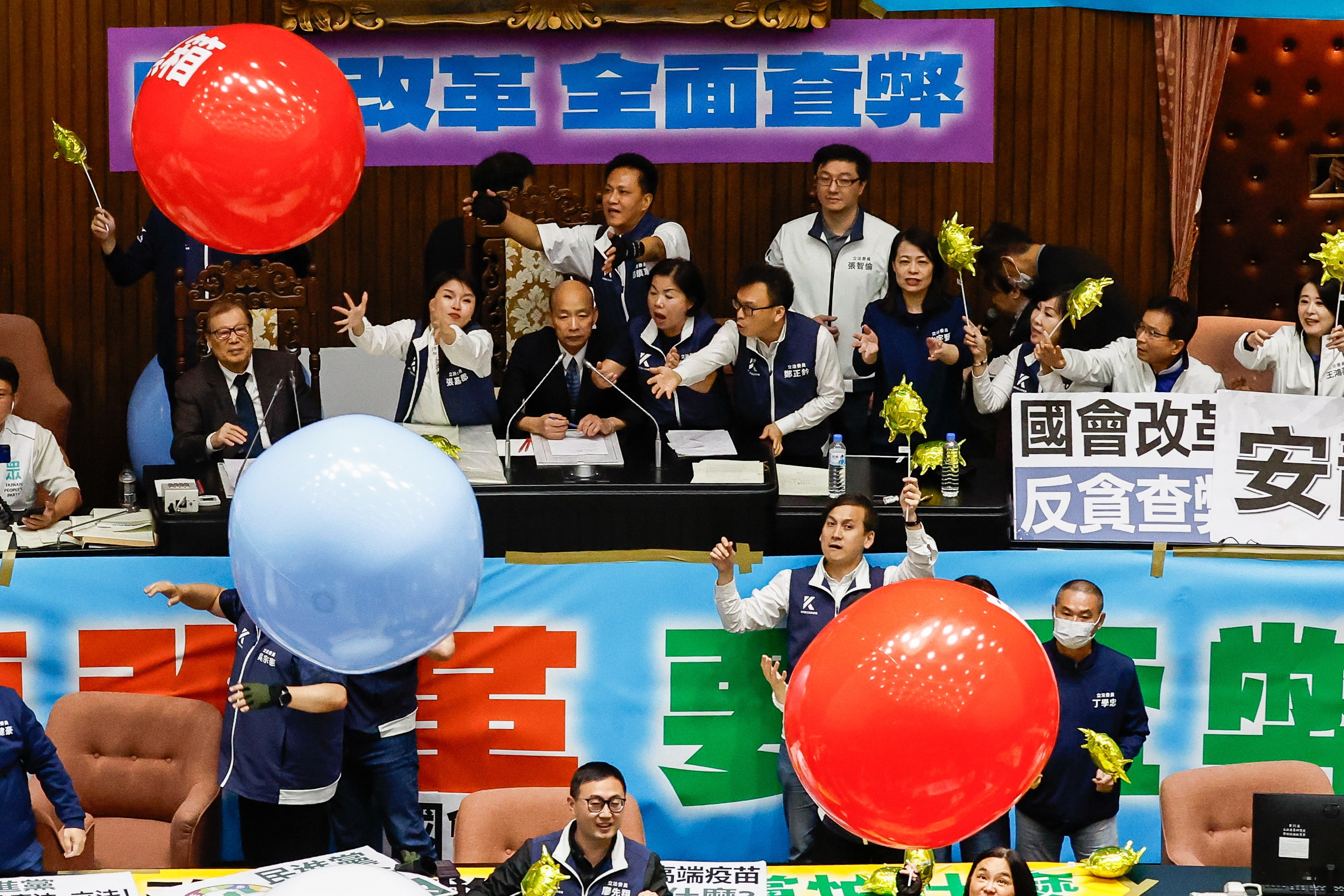
The floor of the legislature was as vibrant as the streets outside as lawmakers of the DPP threw inflatable balloons with words reading “anti evil laws”. MPs from both sides festooned banners in the legislative chamber.
The KMT has denounced the DPP for trying to “paint them red”, the colour of China’s Communist Party, and claims the DPP is trying to quash efforts to investigate corruption cases.
The ruling party will have the option to seek a constitutional interpretation of the new law or propose a referendum, which would require the support of at least 29 legislators.
Additional reporting by agencies
Join our commenting forum
Join thought-provoking conversations, follow other Independent readers and see their replies
0Comments